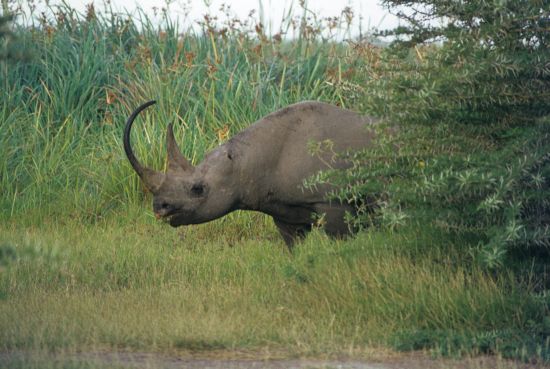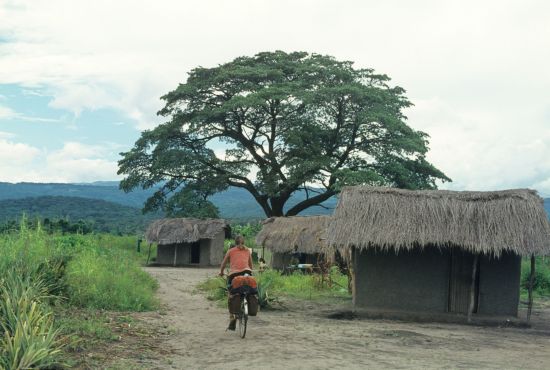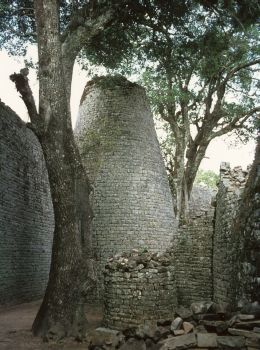| home | site map | world | children | recent | cooking | dutch | german | react | ||||||||||||
Eastern and Southern-Africa 2 (1973).

Tanzania: Also rhinos populated the game parks, here we were quite more carefully
E
lephants crossing", warned us big signs. The road once passed in Tanzania through the middle of a game park. Soon we saw a family grazing beside the road. We stopped, they wanted to cross the road. Seeing us, they stopped too and hesitated, went back to the side again. Slowly we came closer and slowly they stepped further back. Then we cycled as fast as possible past them, not sure how elephants would react to bicycles. They retreated. That day we met about 20 elephants right beside us. Most of them started flapping their ears, but all these colosses were afraid for a bike and stepped back.We hit the rainy season in the next country, Malawi. As roads were often unpaved, we got our share of mud and sometimes only progressed 10 miles a day. Snakes were plentiful too. Sitting beneath a tree, a long green snake once dropped before my feet, curled its way through the spokes of the rearwheel, fortunately decided not to creep into a cyclebag, but took off into the bush.

Malawi: a quiet village when we arrive, leaving the whole population is saying farewell.
Mozambique, fighting a guerilla war against colonial Portugal, had its sandy roads land- mined. For safety reasons we cycled over or right beside the rail tracks. Neither the black nor the white inhabitants disturbed us, both were really friendly. Only once we heard shooting and coming closer we found 3 Portuguese army trucks. Soldiers were loading guns and searching the bush. We greeted and quickly cycled past, not waiting to be involved in a clash.

We wanted to camp near a river which was shown on our map; it was a very dry region. Arriving there in the evening we found the river dried up. But Africa had teached us a lot already: dig a hole, let ground water ooze in, wait till it settles, ready!
At last we reached South-Africa. Now we had to watch for signs at the doors: whether it was an entrance for whites or for non-whites. We always camped at farms and found the most hospitable people, we ever met. Often we could not put the tent, but had to accept a bed, bath and a meal. Main topic of the evening was "apartheid" and they tried to defend it honestly, but after two months of defence we were even more opposing it.
Zimbabwe: In "black-Africa" very few remnants remained of old cultures, because Africans built with non-lasting matrials. Zimbabwe the only place with imposant 500 year old ruines.
| Site map (nl) | Around the world | Previous | Next page | |||